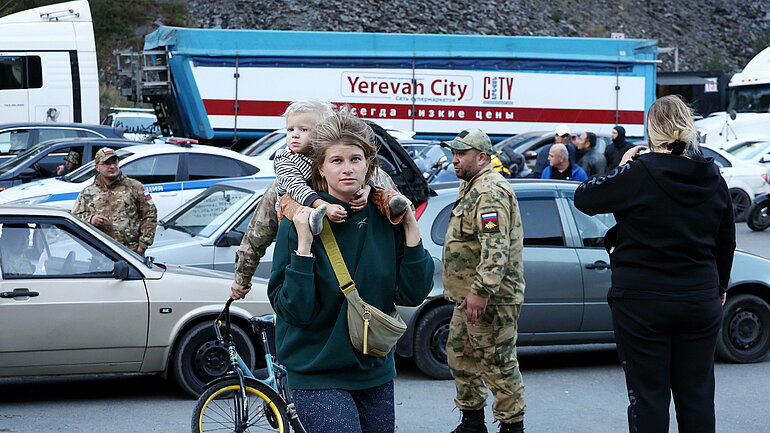Emigration during War: A New Generation of Russian Migrants
Emigration during War: A New Generation of Russian Migrants
Project description
Russia’s war against Ukraine has triggered significant emigration from Russia. Since February 2022, several hundreds of thousands of Russian citizens have left the Russian Federation and settled in places that had previously seen significant out-migration, often towards Russia. Georgia and Armenia are popular destinations for Russian migrants, either as a temporary stopover or for more permanent relocation; others have left for Turkey and countries in Central Asia.
Young urbanites with higher levels of education are disproportionately represented in this wave of migration. Nevertheless, little is known about the socio-demographic profile, political attitudes and networks of these new migrants. With their presence already felt in their current destinations, they could potentially leave a more than temporary mark on their host societies and/or country of origin. What is beyond doubt is that out-migration has significant implications for the Russian labour market.
The large share of young men among those who have left Russia suggests that the wish to avoid the draft was a key motivation behind this migration. Political opposition to the war, fear of repression, and negative assessments of one’s own life prospects are other push factors. The countries of destination vary in crucial respects: most of them were easily accessible for the migrants; some have their own established Russophone communities; and they span regime types from unconsolidated democracies to (semi-)authoritarian systems. They also differ in their political positioning vis-à-vis Russia: from Georgia, which itself has fought a war against Russia, to Armenia, which depends on Russian support in its ongoing hostilities with Azerbaijan, and other authoritarian and, in some cases, resource-rich countries whose relations with Russia have previously been cautious if not good.
Given this variation, this project aims to collect systematic data on the characteristics, attitudes, expectations and behaviours of this new generation of migrants. Conceptually, it draws on the multidisciplinary literature on migration and displacement, young people’s attitudes and behaviour, and intergenerational change.
Methodology
- Original, large face-to-face surveys of new Russian migrants in Armenia, Georgia, Azerbaijan, Turkey, Kazakhstan and Kyrgyzstan based on different recruitment techniques (street intercept, snowball sampling, panel database, announcements in social networks)
- Comparative analysis with other surveys (e.g. Levada)
- Qualitative research on the context in the destination countries
Key questions
- How does the socio-demographic profile of the migrants who left Russia after February 2022 compare with that of more established Russian communities?
- What local and transnational networks of Russian migrant communities exist?
- What key patterns emerge in the political views of the new migrants?
- How are the new Russian migrants shaping their host societies? Are they also trying to influence developments in Russia?
- How can one best conceptualise this generation of migrants and the role they play for Russia and/or for the host societies?


![[Translate to Englisch:]](/fileadmin/media/_processed_/4/3/csm_Sasse_2022__Riedl__27effde830.jpg
)